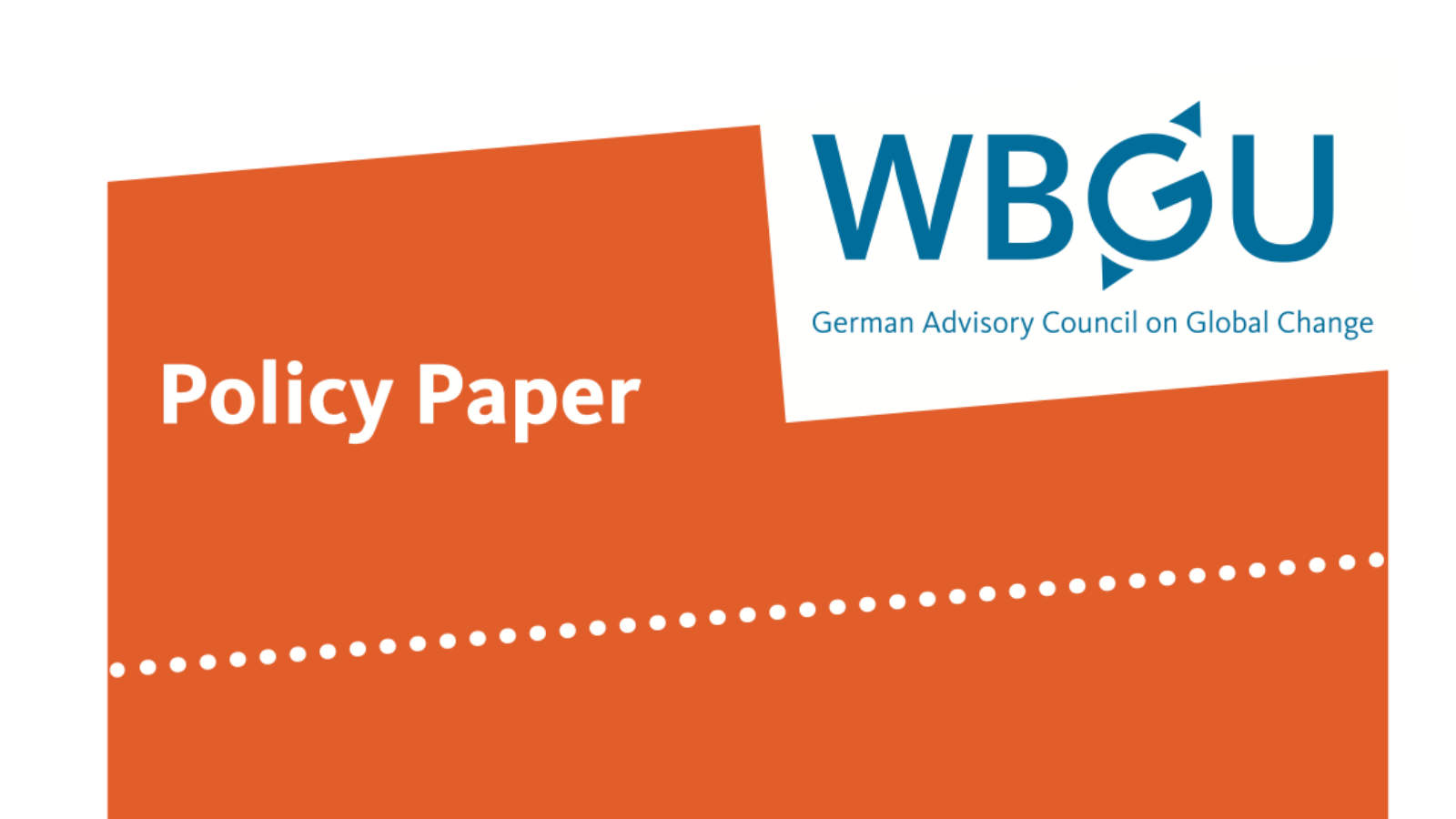Now mobilize private capital for the global energy transformation

The German Advisory Council on Global Change (WBGU) is today submitting a policy paper entitled Financing the Global Energy-System Transformation to Federal Minister of the Environment Peter Altmaier. Doubts have repeatedly been expressed recently as to whether the Energiewende (energy-system transformation) in Germany is financially feasible. In its policy paper the WBGU shows that there is enough private capital available, but it can only be mobilised with a coherent transformation strategy.
Create Long-Term Investment certainty
The conversion of the energy systems requires a policy framework that generates investor confidence. In this context, a proactive state is needed to lay down ambitious, mandatory and long-term national energy strategies with measurable targets. At the same time, policy-makers should create more openings for citizen participation – in order to address concerns in good time and adjust plans where necessary. Public acceptance of grid expansion can be markedly improved in this way. The energy-system transformation or Energiewende will lead to a temporary increase in energy costs. Disadvantages for low-income households must be adequately cushioned by social policy. According to the WGBU, however, the additional money invested in renewable energies and energy efficiency will probably be fully offset by savings on the cost of fossil fuels in conventional technologies by 2040. Germany is currently a frontrunner in the global transformation of energy systems, both in terms of technological innovations and in the creation of a suitable policy framework. The country should make the most of this opportunity in order to demonstrate that the transformation of the energy systems is politically – and above all financially – feasible.
Offer Incentives for Investment
The WBGU considers it essential to support the use of renewable energies for a certain period of time. For this purpose, it recommends feed-in tariffs combined with feed-in or purchase guarantees during the renewable-energy roll-out phase. At the same time, subsidies for fossil and nuclear energies must be phased-out. The power market and grid regulation in Germany and Europe should be designed in such a way that electricity from renewable sources can be integrated into the market without problems and sold directly as soon as possible. Public-sector support of research and development in the field of sustainable energy technologies is essential, especially in the fields of electricity transmission and storage.
Reduce Barriers in the Capital Markets
In order to make it as attractive as possible to invest private capital in these areas, the WBGU recommends increasing the funds available to national development banks and developing these institutions into green investment banks. Furthermore, financial-market regulation and international accounting standards should be geared more strongly towards sustainability criteria. Private households and small and medium-sized enterprises should be supported in the financing of transformative energy investments by promoting energy cooperatives and new business models and by enabling better access to venture capital.
Promote the Energiewende in International Cooperation
Additional measures are needed to support investment in the energy-system transformation in developing countries. It is essential that these measures should include the establishment of facilitation organisations, strategic energy partnerships between industrialised or newly industrialising countries on the one hand and developing countries on the other, better access to national and international capital, and risk hedging for investments. In developing countries, too, new financing and business models can help reduce the liquidity barriers that are obstructing investment in energy generation and energy efficiency.
